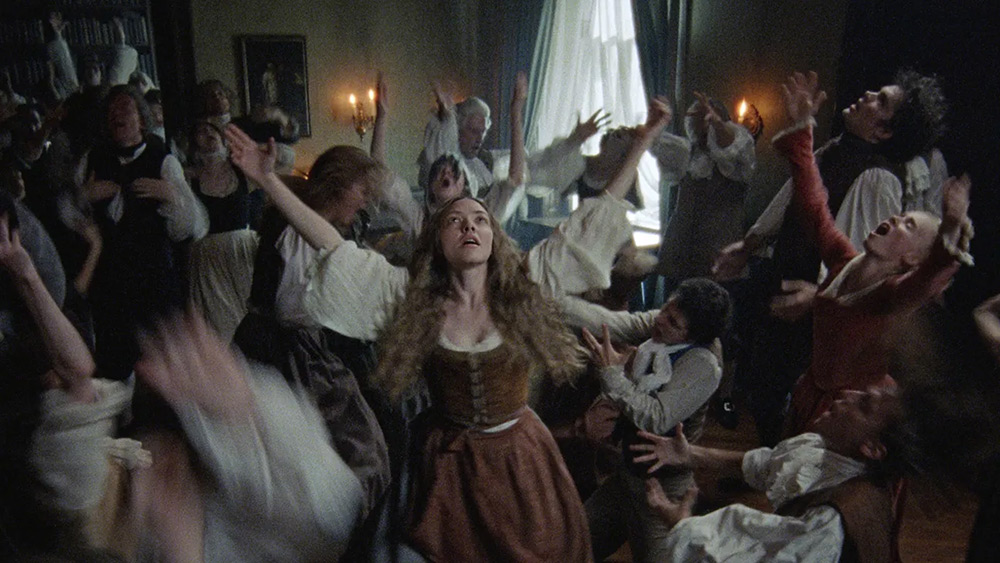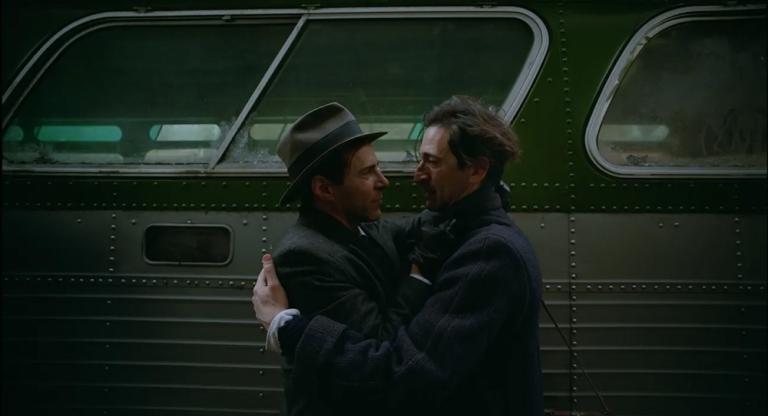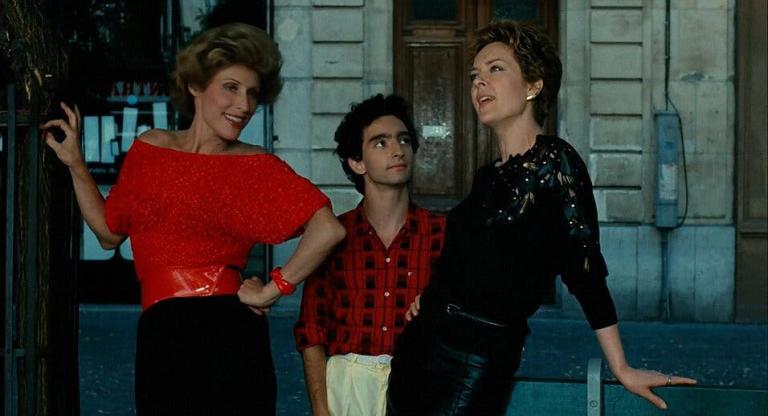The Venice Film Festival sounds like a never-never land, held on a secluded island in an impossible-sounding city graced by celebrities arriving by boat—boat, I tell you!—but you’ll be relieved to know that brain-frying anxiety and despair was plentiful thanks especially to A House of Dynamite.
Kathryn Bigelow’s step-by-step thriller of American nuke unpreparedness describes a country which cannot seem to stop a single ICBM from hurtling toward a major city, and because of its docudrama realism and a judicious (but not distancing) topspin of suspense and ambiguity, there’s little shaking it from the mind. At a festival that looked spectacular on paper, Bigelow’s ostensible Tom Clancy thriller was in fact the most fully realized selection, brilliantly deploying a strategy that had both a pop snap and conceptual rigor. The timeline to missile impact is restarted and retold from the multiple perspectives of different strata in government, a bit like United 93 (2006), from military radar monitors, to defense department leaders, to the president (Idris Elba, kept off screen for over an hour, stoking the sense of rudderless confusion). Nobody truly knows what can be done, and all the training and crisis preparedness feel hollow when the prevailing human response is helplessness, even at the very top. Bigelow and screenwriter Noah Oppenheim (Zero Day, 2025) dispense with party identification, suggesting a systemic problem (or maybe a human one, as canonical doomsday texts Dr. Strangelove and Terminator 2 posit). I suspect the filmmaker hopes the film could be a wake-up call about policy, but as crisis after crisis looms today, the story most effectively communicates that the government can’t save you—and that’s under an administration that would even bother to try.
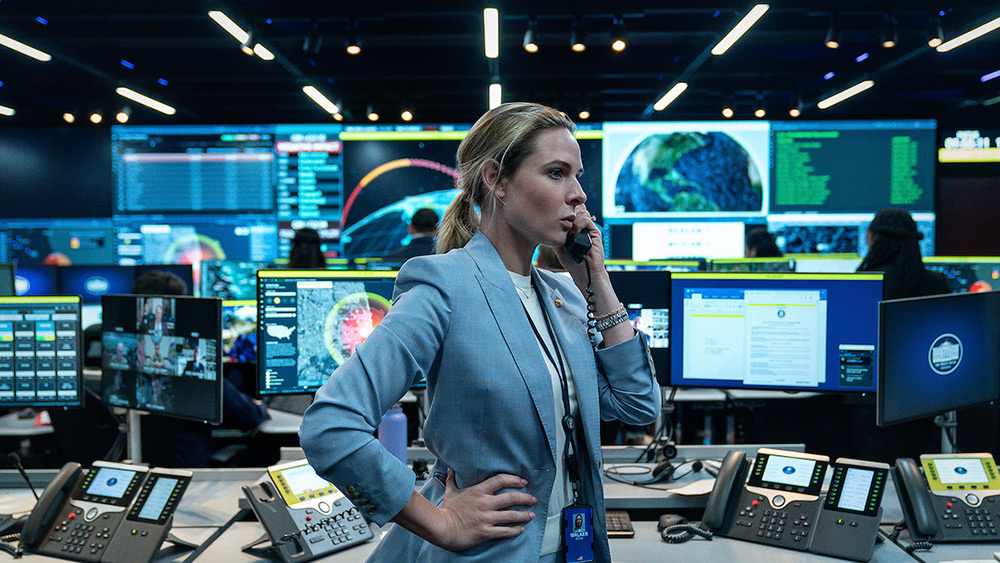
If the evergreen threat of nuclear apocalypse sounds retro, then there were also three dark comedies about desperate men taking Mangione-grade measures in response to economic upheaval. One of these actually takes place in the 1970s but nails the nation’s fatal attraction to, uh, norm-breakers: Dead Man’s Wire, Gus Van Sant’s latest “remake,” reenacts the daylight 1977 kidnapping of an Indianapolis bank executive by Tony Kiritsis (Bill Skarsgård). The reason was partly a real estate dispute, but Kiritsis seized the spotlight to rail against financial chicanery during the protracted hostage-taking—much of it captured by a local TV news crew (Myha'la, best known for her role in the TV series Industry, plays a second-stringer seizing the moment). As Kiritsis runs off at the mouth with random asides and fans out over an unenthused radio DJ (Colman Domingo), Skarsgård puts across a surprisingly winning goofball charm, despite his character rigging a shotgun and tripwire to his victim’s head. That incongruous charm is, I think, the film’s point, which is not to revive Kiritsis as a folk hero but to dwell on how his entertainment value seems to distract from the brutality of what he’s doing.
In Yorgos Lanthimos’s Bugonia, a conspiracy-theorist warehouse worker takes a shrewd CEO (Emma Stone) hostage in his basement, and the result feels like the predicament of competing loci in American power, the corporate and the berserk. Exhausting and exhausted, Plemons gets across the doubling down of the conspiracy mindset, and Stone efficiently conveys a reflexive opportunism, such that Lanthimos’s perennially sadomasochistic view of human relationships has a stopped-clock resonance for a nation voting itself off a cliff (albeit with an ending that seems to undercut its reality). No Other Choice, a more elegantly wrought effort from the master Park Chan-wook, swoops through a murderous farce in which a laid-off worker (Lee Byung-hun) tries to kill off his competition for the next job opening, adopting a capitalist credo that he was only doing what was necessary to ensure success. Park’s latest is one of several Venice premieres whose audiences will only grow at later festivals—a perennial trend, with critics at Toronto this year reeling off TIFF highlights that are often originally Venice premieres.
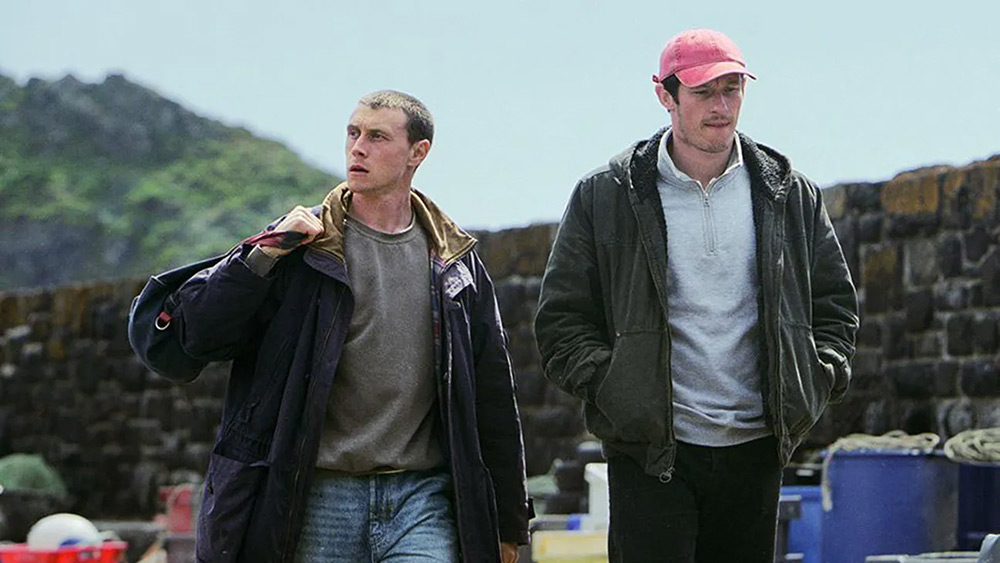
All of the above show filmmakers drawing on genre techniques for intensity but also clarity, joining a thoughtful array of more traditional entries like Guillermo del Toro’s behemoth Frankenstein (featuring a terrific Jacob Elordi as the truly statuesque, initially wordless monster), Mark Jenkin’s maritime yarn Rose of Nevada (a lovely blend of Jenkin’s brand of the local uncanny and a Twilight Zone episode, shot in gorgeously textured 16mm), and The Holy Boy (a satisfying Italian reworking of possession and creepy-village stories that turns into a rather heartbreaking portrait of the titular supernatural teenager). But perhaps the only genre-influenced film to be quite as unsettling and on-point as A House of Dynamite was the grueling The Voice of Hind Rajab from Kaouther Ben Hania, director of the initially underrated hybrid documentary Four Daughters (2023).
Her largely office-bound reenactment recounts a Palestinian call center’s 2024 attempt to rescue five-year-old Hind Rajab from the car where she sat alongside the corpses of family members killed by the IDF. Taking up a similar formal method as the emergency-services thriller The Guilty (2018), but to more challenging dramatic ends, the film is driven by audio—it uses actual recordings of Hind Rajab’s calls, with actors playing the well-meaning operators who disagree on procedure. The distanced intimacy of technology becomes agony, recalling the cell-phone documentary Put Your Soul on Your Hand and Walk, a wrenching film that chronicles video-calls with photographer and force of nature Fatma Hassona, who was murdered by an Israeli strike soon after the film was announced for Cannes this year. Formally, it’s a tightrope act to maintain this quite sparse structure, but in the end it’s a shattering microcosm of both the Israeli army’s horrific brutality and the excruciating odds involved in saving lives; the sound-wave of Hind Rajab’s voice evokes an EKG on screen.
The Voice of Hind Rajab was preceded just a few days earlier by a peaceful pro-Palestinian demonstration along the island and petitions signed by many filmmakers. Some predicted Ben Hania’s film would win the festival’s top prize instead of Father Mother Sister Brother, Jim Jarmusch’s becalmed anthology of sibling-and-parent vignettes. Jarmusch, for his part, used his acceptance speech to praise the political value of empathy as explored in films like his. There were definitely strong films that didn’t directly address world events, such as the innocuously titled Remake, quietly a standout of Venice’s typically formidable documentary selection (Gianfranco Rosi, Lucrecia Martel, Laura Poitras, Werner Herzog). Ross McElwee’s latest installment in autobiographical filmmaking might have been overlooked because of the seemingly innocuous essayistic shuffle of his past few films, but his latest is a searching reflection on his son, who died at 26 after struggles with substance abuse. It’s wrenching, though still elegant and not without humor. (The title refers to a Hollywood producer’s attempt to remake Sherman’s March, McElwee’s masterpiece debut.) McElwee lays bare the purposes and the limitations of self-chronicling, which his son had also attempted in his own style. From great suffering, the 78-year-old veteran creates perhaps his most poignant film.
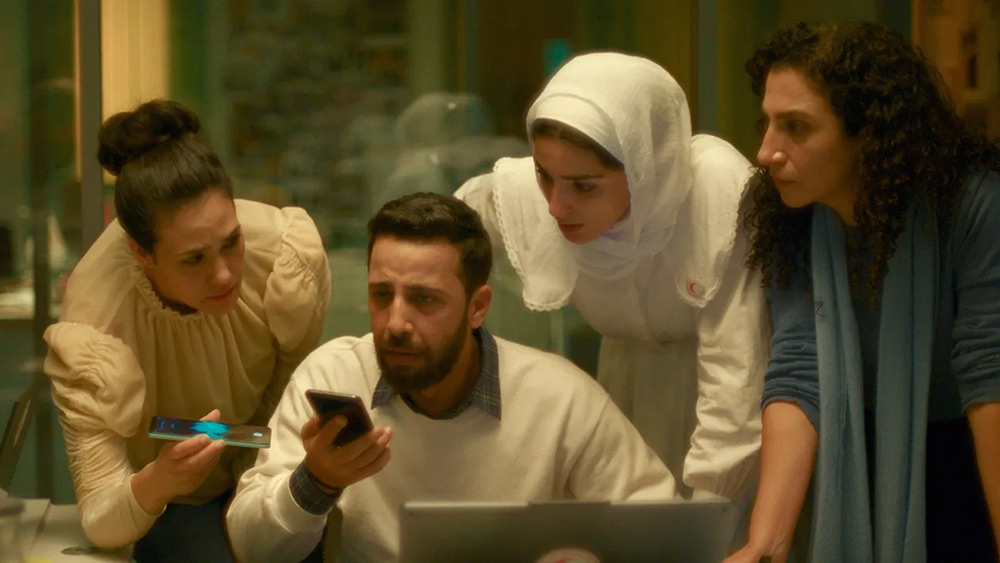
If McElwee’s is one apogee of personal filmmaking, I’ll conclude with a couple of go-for-broke works that are also best understood on their own terms. The first is Mona Fastvold’s The Testament of Ann Lee (pictured at top), the fervid account of the British founder of the Shakers religious movement, founded on celibacy and equality by a factory worker (Amanda Seyfried, electric) and spirited away to pre-revolutionary America. Radical in a number of ways—not least for seemingly dooming itself to diminishing numbers—Lee’s sect and her story get a suitably audacious treatment, with ritualized dance numbers that create a bodily sense of community (and hark back to the 2010s theater piece Angel Reapers), as well as a visionary extreme use of night photography that rivals that in Dea Kulumbegashvili’s April, a 2024 Venice premiere. By no means is The Testament a perfect work, but it sent me away energized to defend it to two bewildered British critics.
Last word goes to one of our happy gods of film art, Tsai Ming-liang, whose latest work was quietly tucked into the waning days of the festival. Outwardly a landscape film, Back Home is a nimble montage of derelict or unkempt homes across the Laotian countryside, each somehow endowed with the found serenity of a sleeping person’s face. Tsai’s camera placement and feel for architecture in the frame remains as piercing as in Stray Dogs and reminded me a little of his little-seen VR work The Deserted, still one of the medium’s best. Like a fond fugue of past lives, Back Home felt like a salve, offering another perspective on a world spinning off its axis.
